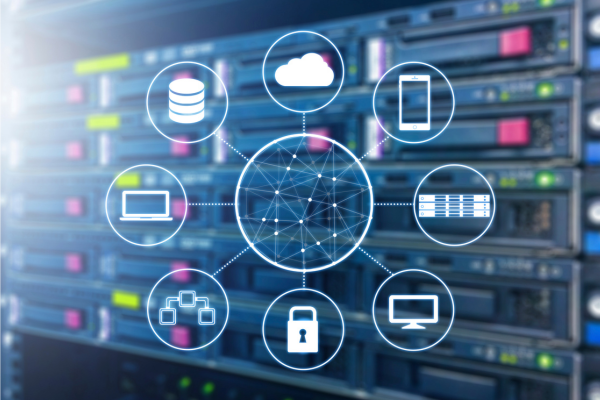
5 ways Data (and Storage) are Powering Healthcare
Healthcare technology is finally catching up with a digital revolution that’s been well underway for over a decade in other industries. The transformation was accelerated in the last three years when confined to our homes for months on end, doctors and patients alike turned to technology to try and stay healthy and connected.
From medical to consumer-grade devices, millions of new endpoints emerged, generating new volumes of data. Ranging from improving individual health to better patient outcomes to enabling more advanced research, data, and the storage behind it continues to power the evolution of healthcare today.
Evolving the Healthcare Industry
Deloitte Global says, “Advances in sensors and artificial intelligence (AI) are helping millions detect and manage chronic health conditions and avoid serious illness on devices small enough to be worn on a wrist or penny-sized patch.” Between smart watches and medical-grade devices, the firm forecasts that 440 million units as new offerings will hit the market by 2024.
These wearables will include consumer-grade fitness devices as well as life- saving patient monitoring technology, such as insulin pumps and glucose sensors. All of these devices will need to be equipped with high-capacity and/or high-performance onboard storage that is accessible, scalable, and connected to applications and the cloud.
Bringing vast amounts of data closer to the user requires real-time processing so patients and their providers can make informed health decisions fast. This approach has become more mainstream in the last few years and is only going to grow. According to research by Insider Intelligence, remote patient monitoring (RPM) devices are expected to grow more than 50% by 2025. Over a quarter of the U.S. population is expected to become users.
Healthcare Data for Better Health
Arming people and providers with reliable, secure access to health data is revolutionising care delivery and stands to transform healthcare at scale, especially in the following five ways:
- Maintaining Healthy Lifestyles: On-board data storage allows users to take control of their own health–providing them with real-time insights into heart rate, calories burned, oxygen intake, and other biometrics. The data can then be synched to applications and the cloud–centralising pertinent information that physicians and other healthcare professionals can use to make lifestyle recommendations, such as diet, medication, or workout changes.
- Improving Patient Outcomes: Access to real-time data gives healthcare providers powerful insights they can use to make data-driven decisions in the moment. Armed with the right context, physicians can diagnose conditions remotely through telehealth visits, identify trends in behaviour that pinpoint causes of a health issue, and enable advanced health solutions such as robotic surgery, smart pill dispensers, and connected ambulances that lead to positive patient outcomes.
- Driving Research Through AI/ML: AI/ML engines that power healthcare research are only as good as the data you feed into them. Reliable, secure, and scalable data storage solutions ensure that the vast amount of research data is accessible in real-time – allowing AI/ML solutions to better predict disease outbreaks, gain insight into cancer, Alzheimer’s, AIDS, or other currently incurable conditions, and better understand the human genome.
- Enabling Large-Scale Health Projects: Global health initiatives are massive undertakings requiring constant coordination between government agencies, non-profit organisations, healthcare organisations, and the public. Proper data collection and governance regulations ensure these projects are managed appropriately and efficiently without putting personal information at risk.
- Reducing Healthcare Costs: Healthcare costs are up in many areas of the world (particularly in the U.S.), but data can make services more affordable through efficiency and automation. Leveraging insights from data can streamline back-end operations, reduce hospitalisations, optimise the performance of medical devices, and eliminate unnecessary services.
Storage is the Ultimate Enabler
As the healthcare industry moves toward greater digitisation, the data produced just by IoT devices may get to a staggering 79.4 zettabytes (ZB) by 2025. Given the trillions of bytes of data being generated, the challenges associated with data storage can only be surpassed by using robust storage solutions. Hospitals and medical institutions will need high-capacity, high-performance storage solutions that offer greater reliability and access to vital information to make life-changing decisions in real time.
Data will play a key role in making better healthcare more accessible to people across geographies. The data infrastructure industry continues to innovate as well, helping create storage solutions to help the healthcare industry unlock its potential.
Reach out to us today for a complimentary consultation – email info@hbtech.co.nz or phone 0800 423 834.


